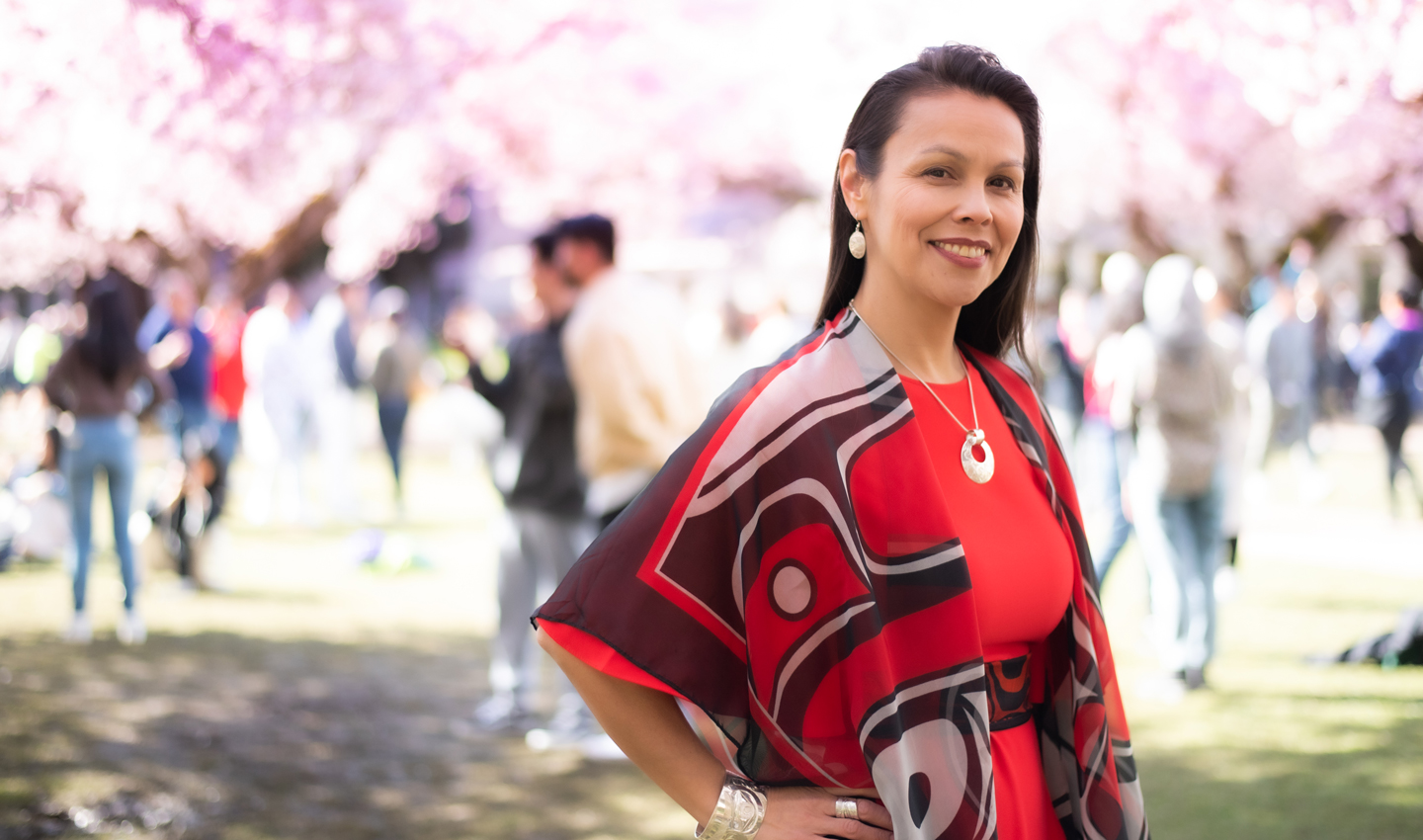Nicole Kuhn’s research as an iSchool Ph.D. candidate is a balancing act between the slow, deliberate pace of academia and the quick, in-the-moment pace of social media. Kuhn’s research focuses on Indigenous health communication on social media and is deeply connected to her ongoing work on Indigenous research ethics.
Her work relies on careful relationship building with Indigenous communities, which takes time. Thanks to a Ford Foundation predoctoral fellowship and a National Science Foundation graduate research fellowship, she will have the time that is needed to ethically engage in Indigenous research.
When Kuhn began her Ph.D. work at the iSchool in fall 2019, she was thinking a lot about Indigenous research ethics and figuring out how she would combine that focus with her previous work in human-computer interaction and digital youth. As a Native scholar — she’s a member of the Skidegate Band of the Haida Nation — Kuhn was particularly interested in figuring out what work would be most beneficial to Native communities.
Within a quarter, the pandemic hit and Kuhn’s focus soon became clear.
“I started to see in my own social media feed how our Indigenous communities were leveraging social media to deliver really essential, timely health communication and community information on how to navigate the COVID-19 pandemic,” she said.
Social media was a resource both for those living in their home communities and, like her, living away from home.
“I saw from my own experience how social media became a really important part of sharing health communication online, even within smaller, close-knit communities. With the added component of social distancing, there was a real need to provide essential health communication and manage public health responses in ways that were appropriate and relevant to each community,” she said.
This early interest in social media became the focus of Kuhn’s work. She led a research project about Indigenous communities’ messaging around COVID happening on Facebook, which resulted in a published paper. That work was also the beginning of a collaborative relationship with a regional Tribal health advisory organization, Northwest Portland Area Indian Health Board (NPAIHB).
NPAIHB’s adolescent health team became very interested in learning more about TikTok, which was quickly gaining in popularity, especially among youth. Kuhn pivoted to prioritize what they needed to know about TikTok, and to get that information back to them as quickly as possible. That work resulted in a community publication and multiple presentations to the Tribal health community.
The ethics of Indigenous social media research are complex and have to be carefully considered throughout the research process, from first developing the research questions through choosing a dissemination plan, Kuhn said.
“It’s really important to me that my work aligns with what our Indigenous health organizations and our communities want to know.”
“Building relationships over time is essential, along with ensuring that research benefits Tribal communities, risks are understood and minimized, and important issues such as privacy, consent and data sovereignty are considered,” she said.
It can be challenging to do community-engaged academic research, which needs to be careful and deliberate, in such a fast-moving environment like social media.
“There’s so much happening on social media that affects our Indigenous youth and communities, and there are relatively few Native scholars in the United States focused on these topics,” Kuhn said. “It’s really important to me that my work aligns with what our Indigenous health organizations and our communities want to know.”
Kuhn is now collaborating with NPAIHB’s adolescent health team to understand more broadly Indigenous health communication on TikTok and the different ways that Tribal health organizations and Indigenous influencers are leveraging the platform for community engagement.
Kuhn is grateful to have other Indigenous Ph.D. students and faculty at the iSchool and on her supervisory committee, including her advisor, Assistant Professor Clarita Lefthand-Begay. The iSchool’s focus on Native North American Indigenous Knowledge was an important factor in attracting Kuhn to the iSchool as an Informatics student. Since then, she has worked with the Center for American Indian & Indigenous Studies’ (CAIIS) as an AIIS Scholar and a Knowledge Family mentor; co-created the first Foreign Language and Area Studies (FLAS) Haida language cohort at UW; led the iSchool’s Diversity Ambassadors Ph.D. program; and joined the new Shell House Canoe Family at UW, č̓away̓altxʷ ʔiišəd.
Kuhn intends to stay in academia as faculty after she completes her Ph.D., and she’s taking the next step toward that.
“I am excited to bring all these experiences and collaborative work together as I complete my dissertation proposal this year,” she said. “I’m very honored to work with our partner, NPAIHB, and I’m learning so much from this collaboration that will positively impact me and my scholarship, my relationships, and my future goals. Everything is so interconnected in Indigenous research, especially as a Native scholar.”
